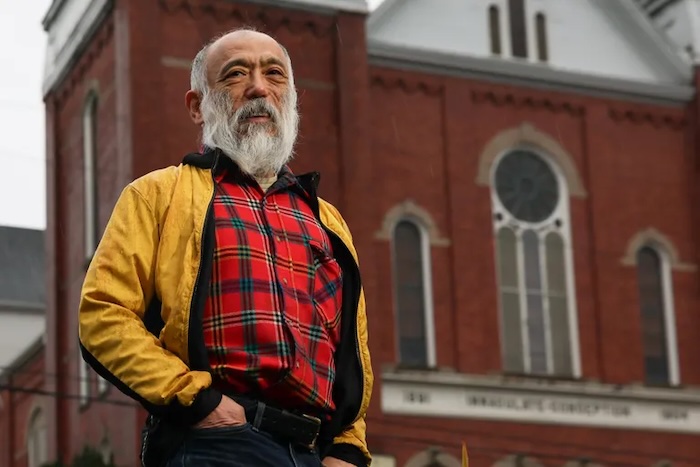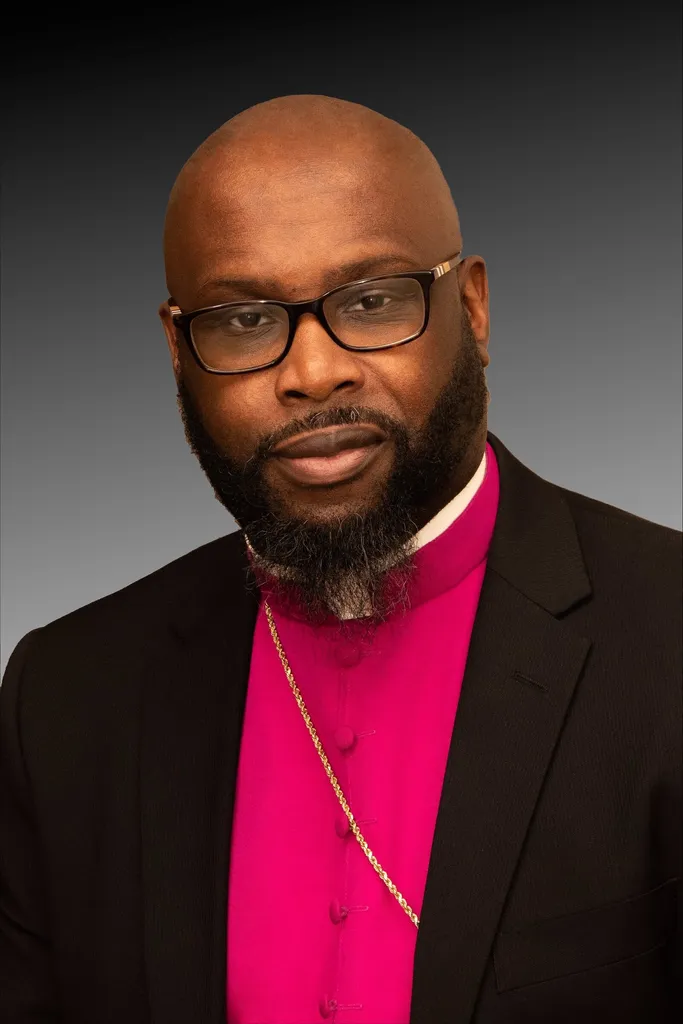
When Pope Francis met in October with leaders of the Global Network of Rainbow Catholics at the Vatican, Seattle’s Leo Egashira said it was a pivotal moment.
Given the “glacial” pace of change for the church, he said the picture of LGBTQ+ Catholic leaders meeting with the pope would have been unthinkable even 10 years ago.
Egashira, who was a longtime board member of DignityUSA, a U.S. organization that advocates for LGBTQ+ Catholics and is involved in the Global Network, said the meeting was a “tacit blessing” and an opening that portends great hope for change in the church.
Then last month’s decision by Pope Francis to allow blessings for same-sex couples took that change a step further.
“I think it’s an acknowledgment that our voices are being heard, and that the leaders are realizing that all people are part of the church and that it’s not an exclusive club,” Egashira said. “I think that the current pope has a very pastoral leadership style, and that pastoral leadership style calls for inclusivity.” Egashira described a pastoral approach as seeing and addressing the personal and spiritual needs of an individual as opposed to judging people for their adherence to specific rules.
But, he said, it is just a first step. “Eventually, I hope it does lead to not only acceptance, but support for LGBTQ Catholics,” he said. “Acceptance is the lowest minimum bar. And this is a step toward that. But I think people deserve and want much more than that.”
Egashira was born into a Seattle Japanese American Catholic family and is a member of the Central District’s multicultural Immaculate Conception Church. He is one of only two of his surviving eight siblings who is still part of the church. Egashira said most of his siblings no longer found the church to be aligned with their beliefs or relevant to their lives.
As a proud gay man, Egashira is determined to stay and fight for change in the church from within.
While the focus of DignityUSA has long been on inclusion for LGBTQ+ Catholics, Egashira emphasizes that addressing misogyny and patriarchy in the church are also critical to making progressive change.
“The basic cause of homophobia is misogyny,” he said. “You’re not going to be able to address homophobia … or transphobia adequately without addressing misogyny. It’s the fear and hatred of women that animates transphobia and homophobia.”
Bishop Edward Donalson III, of the Center for Ecumenical and Interreligious Engagement at Seattle University and a board member of Faith Action Network, agrees.

Donalson said at the root, it’s the “hatred of the feminine” that undergirds homophobia. “All anti-LGBTQ ideology is moored in misogyny and cis hetero patriarchy — not just patriarchy, it’s a specific cis hetero patriarchy,” he said. “Cis” is shorthand for cisgender, or a person whose gender identity aligns with the gender they were assigned at birth.
It’s important to understand, Donalson said, that the pope’s statement on blessing same-sex couples does not change Catholic theology.
“It does not make same-gender marriage sacramental,” Donalson said. “And that’s an important distinction, both for Catholics who are worried that their church is changing and for LGBTQ folks who might be somewhat deceived by what the messaging is, or somewhat confused by the messaging.”
But, he said, the statement does acknowledge the humanity of LGBTQ+ Catholics who choose to be legally married in the places around the world where legal marriage is an option. It’s not surprising that it came from Francis, Donalson said, because “everything about Pope Francis has been a clear indicator that he has an eye toward compassion. And this is directly in line with his eye toward compassion.”
Yet most importantly, Donalson said the pope’s statement is an opportunity for the church to have a deeper conversation about what it means to bless and what it means to marry. “I think what the pope has done is presented an opportunity for the church to interrogate itself,” he said.
Donalson said that despite all that could be said about the church, it creates community and a place for people to connect to something bigger than themselves worldwide. “People — particularly post pandemic, in an era of absolute isolation — are drawn to places of community, compassion, care,” he said.
Egashira said it’s a deep commitment to caring for all people through charitable work and pastoral care that represents the best of the church.
“The core tenets are, I think, unassailable. And almost anyone can live with it. It’s this when you get all the trappings, the institutional trappings and the power and the politics that go along with it, that it becomes perverted,” he said.
“In times past … the Catholic Church has been the strongest proponent of civil rights and equality,” Egashira said. “And so that aspect I do like, but the fact that in its own house that it has a severe form of misogyny, severe homophobia, it’s really hard to reconcile that with many of the good actions of the Catholic Church.”
Complete Article ↪HERE↩!
